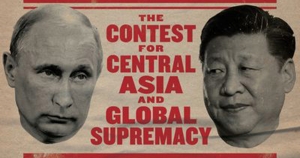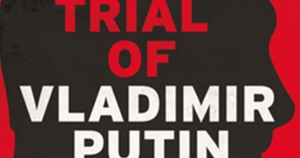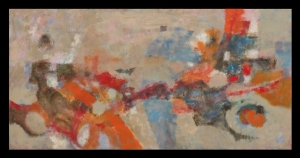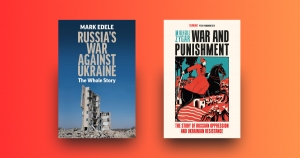Nick Hordern
Nick Hordern reviews ‘Great Game On: The contest for central Asia and global supremacy’ by Geoff Raby
The title and cover of Great Game On tell us that a struggle is underway between Russia and China for supremacy in Central Asia. But by the time the reader has reached the book’s end, they are persuaded that China has already won and that there is more than just Central Asia at stake.
... (read more)Nick Hordern reviews ‘The Trial of Vladimir Putin’ by Geoffrey Robertson
Vladimir Putin must be tried in an international court for ordering the 2022 Russian invasion of Ukraine. He must be tried, not just indicted, and to do this a new international court explicitly intended to deal with leaders responsible for such territorial aggression must be created. Since the Russian president won’t appear before any international court, he will need to be tried in absentia. Nevertheless, such a trial is essential not only to uphold international law, but to deter other international leaders who are contemplating aggression.
... (read more)Mitty Lee-Brown: artist in exile: From a boarding house in Woollahra to Sri Lanka
Nilaveli, on the north-east coast of Sri Lanka, is a long way from Sydney’s S.H. Ervin Gallery, but when in 2017 I visited the exhibition Margaret Olley: painter, peer, mentor, muse, which traced the links between Olley and her circle, the name of one of her fellow artists took me straight back to the white sands of Nilaveli Beach.
... (read more)Sean Turnell is an Australian economist who was detained by Myanmar’s military regime from February 2021 until November 2022. An Unlikely Prisoner, his account of the ordeal, has quite a personal tone as he relates his struggle with unjust imprisonment by a regime whose hallmark was ‘a mix of the needlessly brutal, the petty, and the incompetent’. This personal story is also mixed with politics, for Turnell has an insider’s view of Myanmar’s ongoing struggle for freedom, one of the great dramas of modern Asian history.
... (read more)Nick Hordern reviews 'Saving Lieutenant Kennedy: The heroic story of the Australian who helped rescue JFK' by Brett Mason
In August 1943, John F. Kennedy, then aged twenty-six, was rescued from the threat of Japanese captivity – or worse – by a few brave Solomon Islanders, in an operation coordinated by the Australian naval officer Reg Evans. Evans was one of the Royal Australian Navy’s ‘Coastwatchers’, intelligence collectors based perilously behind Japanese lines.
... (read more)The political scientist Karl Deutsch once said that a nation is a group of people united by a mistaken view about the past. These two new accounts of the history of relations between Russia and Ukraine, and the nationalist distortions of that history, would seem to bear him out. Vladimir Putin’s historical arguments for the war against Ukraine are widely accepted by his fellow countrymen and women, prompting the Russian journalist Mikhail Zygar to argue, in War and Punishment, that this ‘imperialist’ history is ‘inherently addictive’ and ‘our disease’. But this is not a vice unique to Russians: the Australian historian Mark Edele points out, in Russia’s War Against Ukraine, that Ukrainian governments have also indulged in a ‘clumsy politics of memory’ by celebrating anti-Semitic, anti-Polish, and anti-Russian nationalists.
... (read more)Nick Hordern reviews 'Zelensky: A biography' by Serhii Rudenko, and 'A Message from Ukraine' by Volodymyr Zelensky
It has been a long time since the West had a hero like Volodymyr Zelensky, who is frequently ranked alongside Winston Churchill as a wartime leader and orator, Mikhail Gorbachev as a reformer, and Emmanuel Macron as a political disruptor. However deserved these comparisons may be, they deflect attention from the murky post-Soviet environment which shaped his career. The collapse of the region’s communist economy has left a legacy of corruption which, together with the deep intertwining of Ukrainian and Russian society, means that Zelensky’s case is not as clear-cut as it may seem to outsiders.
... (read more)The idea that the world faces a second Cold War started out as hyperbole, but by 2016 it was sounding increasingly plausible. For more than a decade, Moscow, under the leadership of Vladimir Putin, had been waging a diplomatic, political, and military campaign to restore Russian power – in the Caucasus, in Ukraine, and in Syria. In the West this has usually been p ...
For countries, and none so important to Australia, have a political system as opaque as that of China. This is deliberate; since the turmoil of the Cultural Revolution, the Communist Party of China (CPC) has striven to make turnovers in its leadership as bland as possible. But the elevation of the country’s current ‘Fifth Generation’ Leadership was actually full of drama. The New Emperors, written by Kerry Brown, director of the China Studies Centre at the University of Sydney, tells us why.
... (read more)Nick Hordern reviews 'Kicking the Kremlin: Russia’s new dissidents and the battle to topple Putin' by Marc Bennetts and 'Putin and the Oligarch: The Khodorkovsky–Yukos Affair' by Richard Sakwa
Moscow’s annexation of Crimea in March was a dramatic sign of Russia’s sense that it had recovered from its post-Soviet weakness. Viewed in the West as an outrage, in Russia the seizure was portrayed as a triumph, the culmination of a national resurgence under Vladimir Putin. It remains to be seen how long this mood of triumph will last.
... (read more)









